Order By 12/15 With Standard
Shipping to Get By 12/24
Order In
shop now
Click offer codes below to apply in checkout. Tap offer codes below to apply in checkout.
There are no promotions running at this time. There are no promotions running at this time.
FREE STANDARD SHIPPING WITH $100+ ORDER: Offer valid for free standard shipping with order $100+ through 11:59 pm ET on 12/15/2024, or while supplies last. To redeem, use code SHIPDEC at checkout. Offer not valid on DuraShocks Icon Collection (W240050, W240023, W240026, W240029, W241104, W241097, W241100, W241098, W241103, W241102, W241166, W240028, W240046, W240024), select products (W240009, W241027, W241023, W241022, W241025, W241115, W241110, W241112, W080163, W080164, W080063, W080172, W080171, W080169, W080134), weekly deals, collabs, doorbusters, Prodeal purchases, prior purchases, gift cards or e-cards, or purchases from retail stores or other websites. Cannot be combined with any other coupon or discount.
30% off Full Price Products: Offer valid on select purchases at www.wolverine.com through 11:59 PM ET on 12/15/24. Use promo code COZYUP to receive 30% off full price products. Not valid on Weekly Deals, collabs, Doorbusters, Prodeal purchases, sale, prior purchases, gift cards or e-cards, or purchases from retail stores or other websites. Cannot be combined with any other coupon or discount.
WEEKLY DEALS: Special pricing on select styles at https://wolverine.com/US/en/holiday-deals-weekly-deals/. No code necessary. Not valid on prior purchases or purchases from retail stores or other websites. Cannot be combined with any other offer or discount.
15% OFF YOUR PURCHASE: Offer valid for 15% off your purchase at wolverine.com when you opt-in to receive Wolverine emails. Offer valid for new email subscribers only. To redeem, click the "activate offer" link included in offer email. Offer not valid on sale items, limited edition products, 1000 Mile products, Prodeal purchases, prior purchases, or purchases at retail stores or other websites. Cannot be combined with any other coupon or discount.
Get 15% off your first order*
when you join our email list.
This site is protected by reCAPTCHA and the
Google
Privacy Policy
and
Terms of Service
apply.
Wolverine Privacy Policy
*Excludes sale
$20 OFF YOUR PURCHASE OF $100+: Offer valid at Wolverine.com for $20 off your purchase of $100 or more. Redeem within 30 days. Enter unique code provided at checkout. Discount applied at checkout. Not valid on ProDeal purchases, prior purchases, gift cards or e-cards or purchases from retail stores or other websites. Cannot be combined with any other offer.
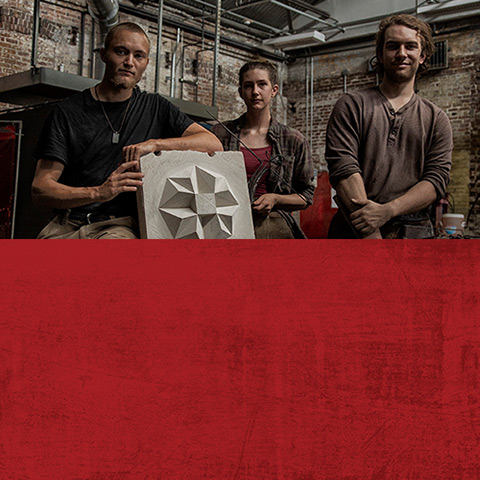
Have each other's back. Refer a friend or coworker and you'll both get $20 off your next purchase.

Kristina Hansen
Made The Old Way
In a 150-year-old former textile mill, 300 gallons of liquid boils inside a pair of twin stills. In the adjacent tasting room, people enjoy the fruits of the process: craft cocktails made with the clean, bright, and citrusy flavor of Bimini Gin.
But for Kristina Hansen, Co-Founder and Owner of Bimini Gin and Round Turn Distilling in Biddeford, Maine, the actual distillation process is just a fraction of the labor that goes into the finished product. More often than not, Kristina can be found preparing the next batch, hauling tools like pumps and hoses, lifting and stacking cases upon cases on gin, sanitizing equipment, or working on the endless construction and maintenance projects that come with the territory of running a 100% analog, hands-on distillery in a very old industrial building.
“When you own a business,
your to-do list is perpetu-
al and never-ending,” she
says. “There's always
something new.”

“There's always something you've been meaning to do for six months. Sometimes the more physical, hands-on projects, whether it's preparing a batch or finishing an organization project or getting a new piece of equipment up and running can be really rewarding, because you have the satisfaction of crossing something off your list.”
With no previous experience in the industry, Kristina and her husband, Darren, started Round Turn Distilling in 2015 after a couple of years of thought and research. They’d been living and working in New York for a number of years but were starting to feel burnt out by their careers and city life. Wanting to return home to southern Maine, they knew the best way to do that would be to start a business. Their interest in the New York City craft cocktail scene and friendships with bartenders wanting to try new products led them down the path toward the distillery business.
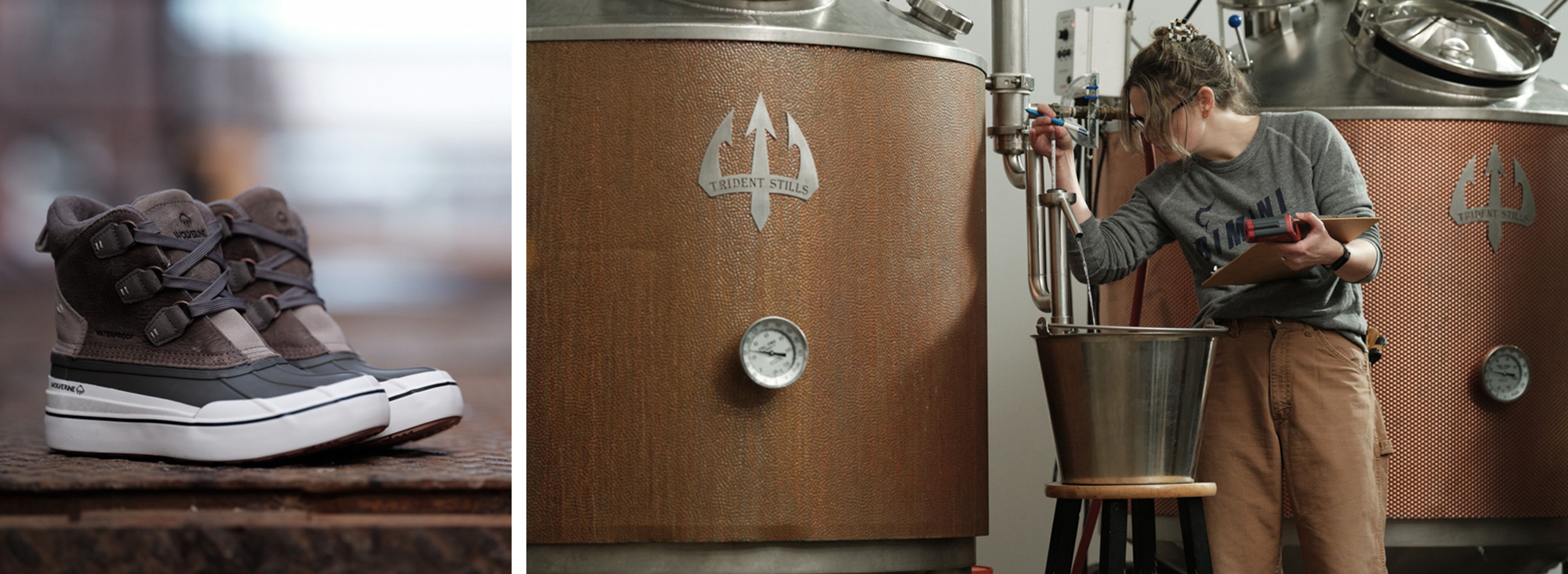
“Diving into this venture without a ton of knowledge about it at first was intimidating,” Kristina says. Later on, she found a lot of support from the community of small distillers, including the Maine Distillers Guild. But at first, it was truly a process of forging her own path through the learning process of distilling, through the trial and error of perfecting a recipe, and through the elaborate process of licensing and certification.
“Getting started was very tricky,” she says. “There was not a lot of guidance available. You really had to rely on your own abilities to research and problem-solve and get your own questions answered rather than reaching out to someone for information. There were several reference books that we used. Most, if not all of them, were published pre-prohibition because the technology really hasn't changed very much. Distilling is actually a very simple physics process.”
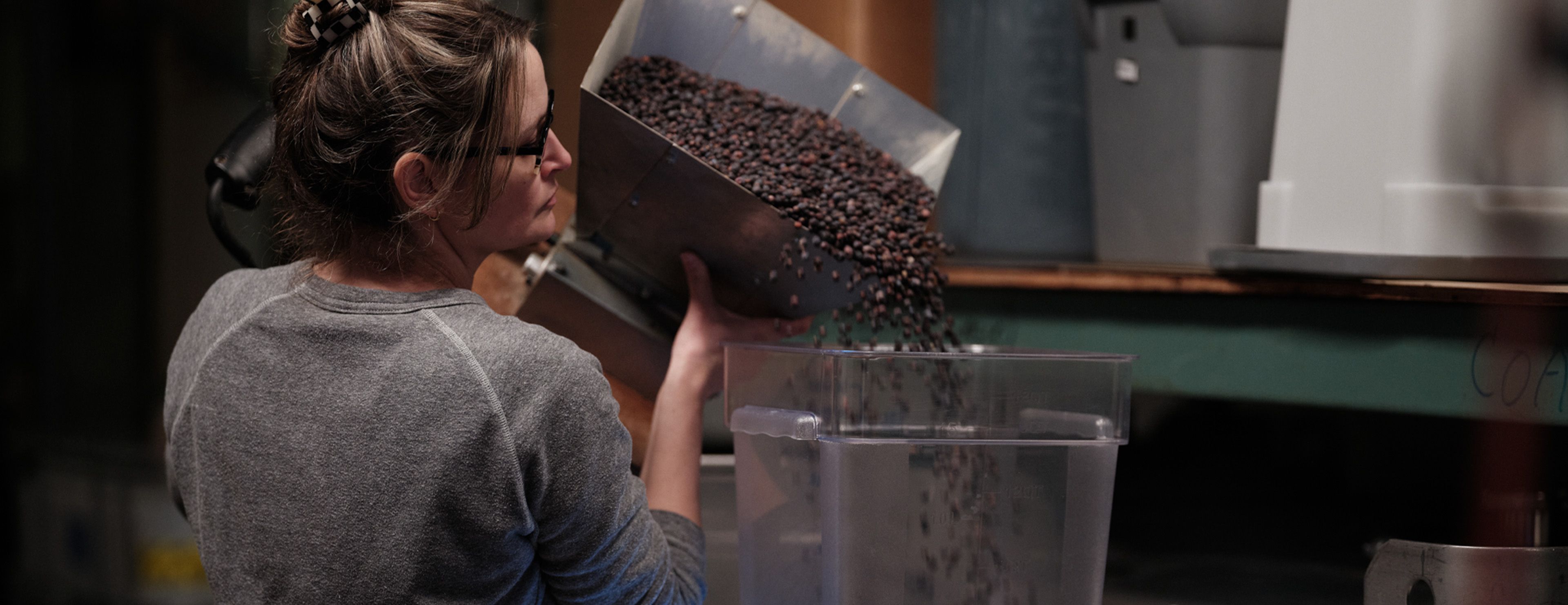
An attraction to that simple process dictated Round Turn’s particular setup. Unlike many of the much larger distilleries that have automated computer systems running every step in the distillation process, the process at Round Turn is fully manual, and each piece of equipment was specifically made for the unique properties of gin.
“It's very hands-on, very low-tech,” Kristina says, “but for us it was the appropriate way to approach it. “Having something analog where you can see it and manipulate it just makes a little bit more sense intuitively. We don't really have the option of autopilot, but in that way, we're able to be really involved in the process from start to finish and have a really firm understanding of beginning, middle, and end of the whole process.”
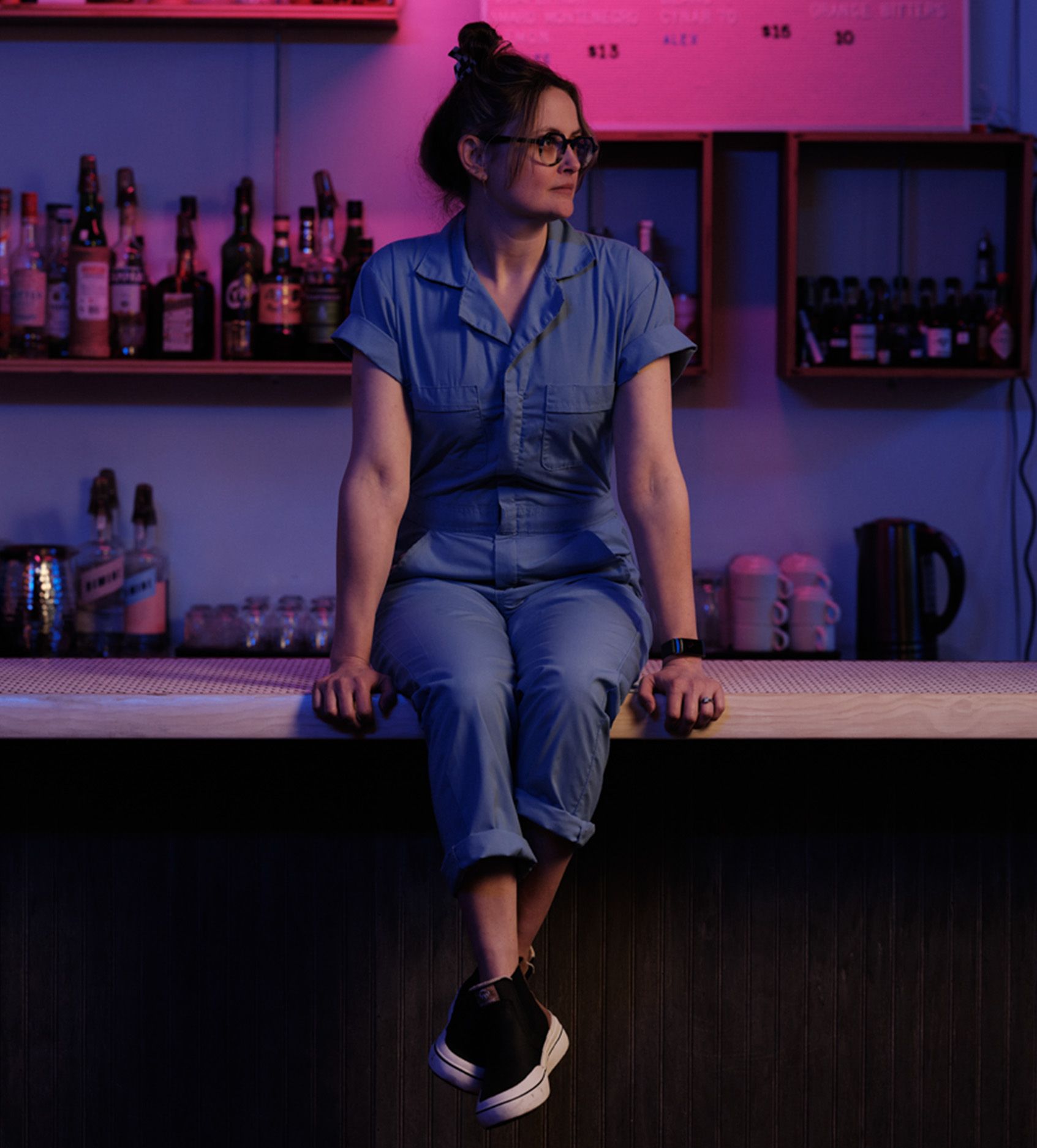
The challenges of creating a consistently excellent product, and of running a business, Kristina faces head-on. She does the same with the challenges of being a woman in an industry made up mostly of men.
“There’s often the expectation that I’m not as involved as I am,” she says. “People make the assumption that I am a brand ambassador that’s been trained on a handful of talking points, or I just do the books, or I’m the host for the bar or something. I just approach it with as much good humor as I can, and maybe a gentle rerouting of the conversation. In the tasting room I’ve had people second-guessing if I knew what I was pouring or how I was making the cocktails. I literally made this product. I can answer any question you want to throw at me.”
But for her, the tasting room is also where she finds the most rewarding part of her job. It’s the sense of community that comes from being the go-to spot for craft cocktails in downtown Biddeford.
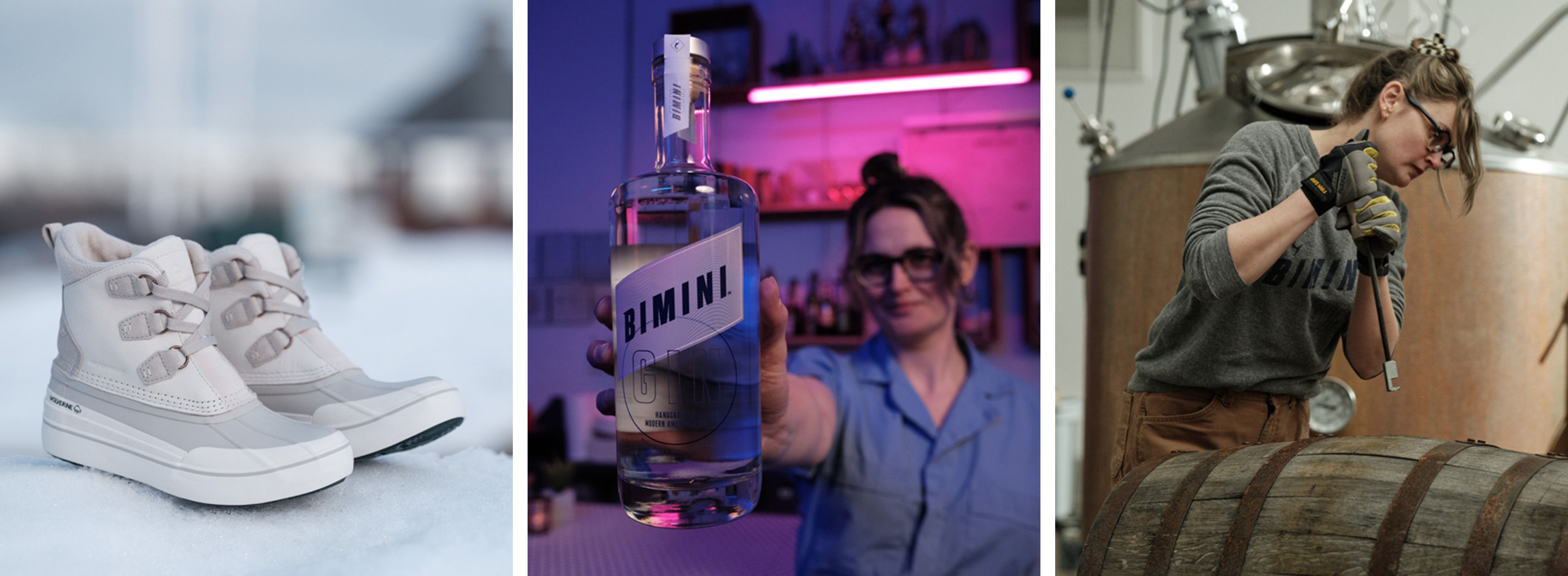
“For us, it's really important to have a connection with the guests that visit us here,” she says, “having them hear our story and our vision for what we want our product to be, and then being able to experience that in the cocktail they're enjoying and having that whole story come full circle. It’s a deeper connection than just some random well liquor or a more well-known national brand that doesn't necessarily have much connection to anything other than just existing.”
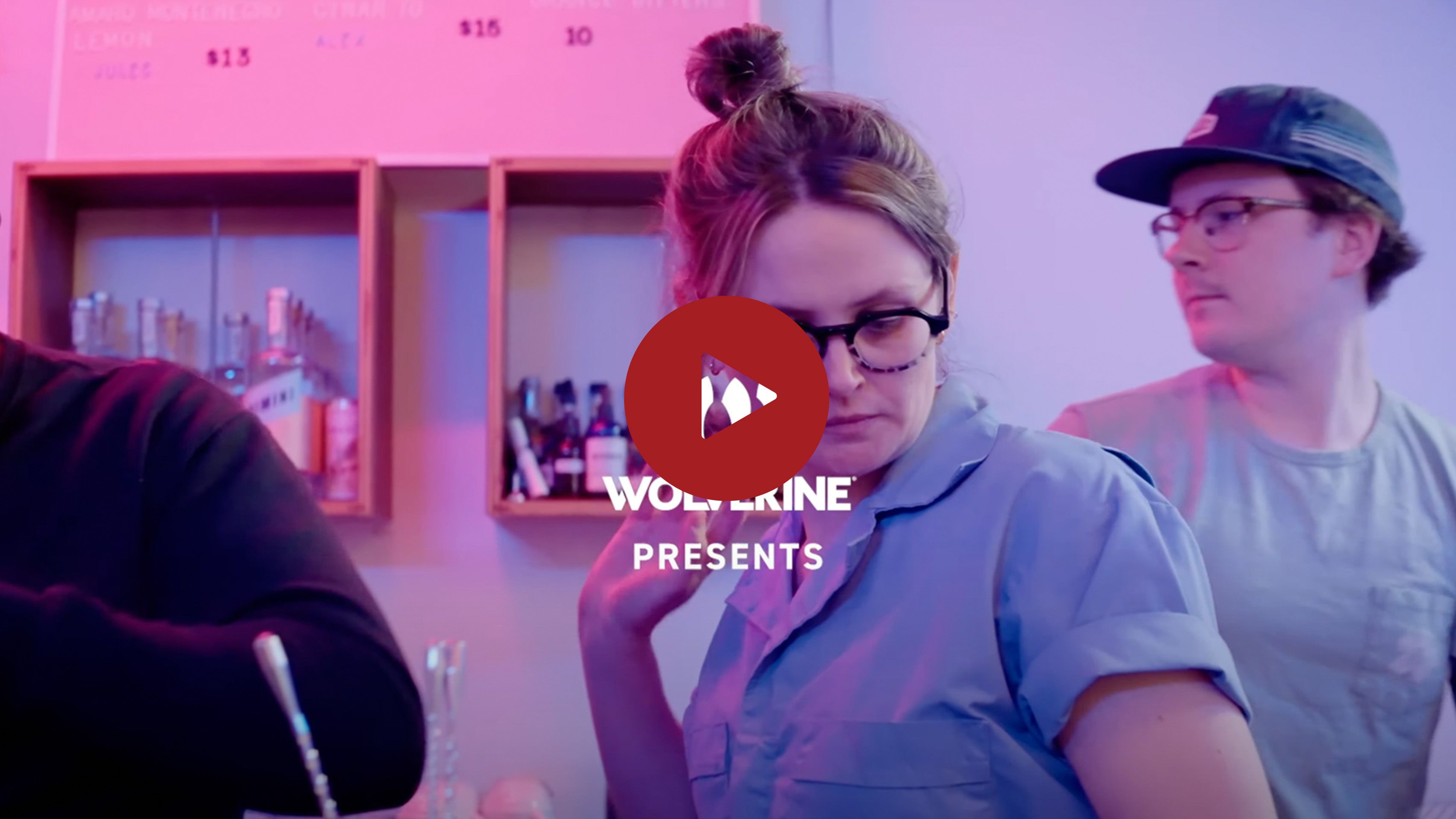
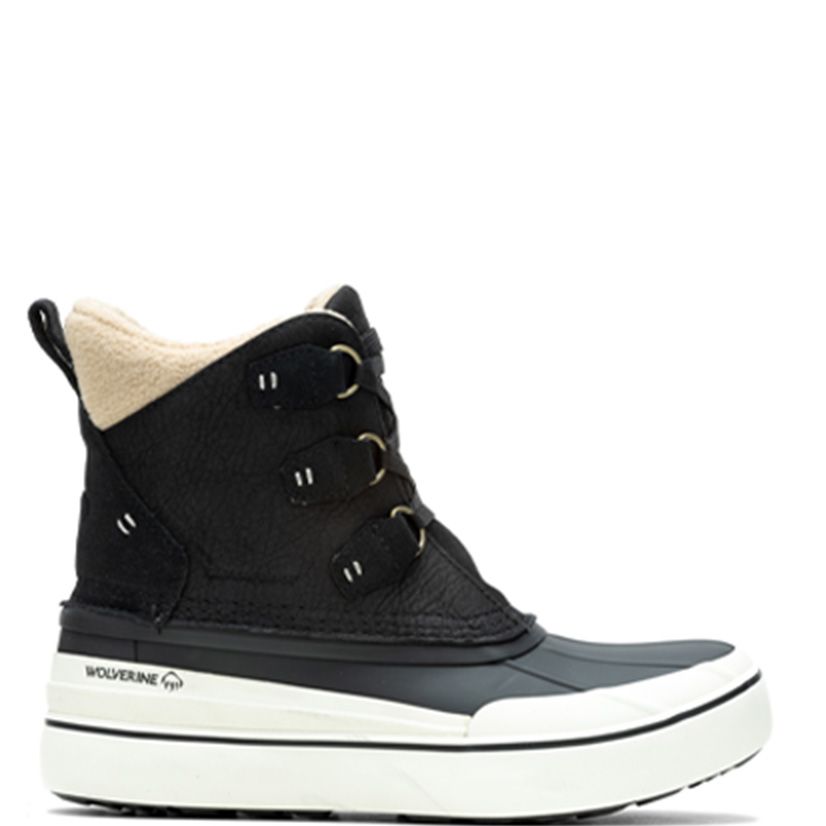
SHOP NOW >

SHOP NOW >

SHOP NOW >
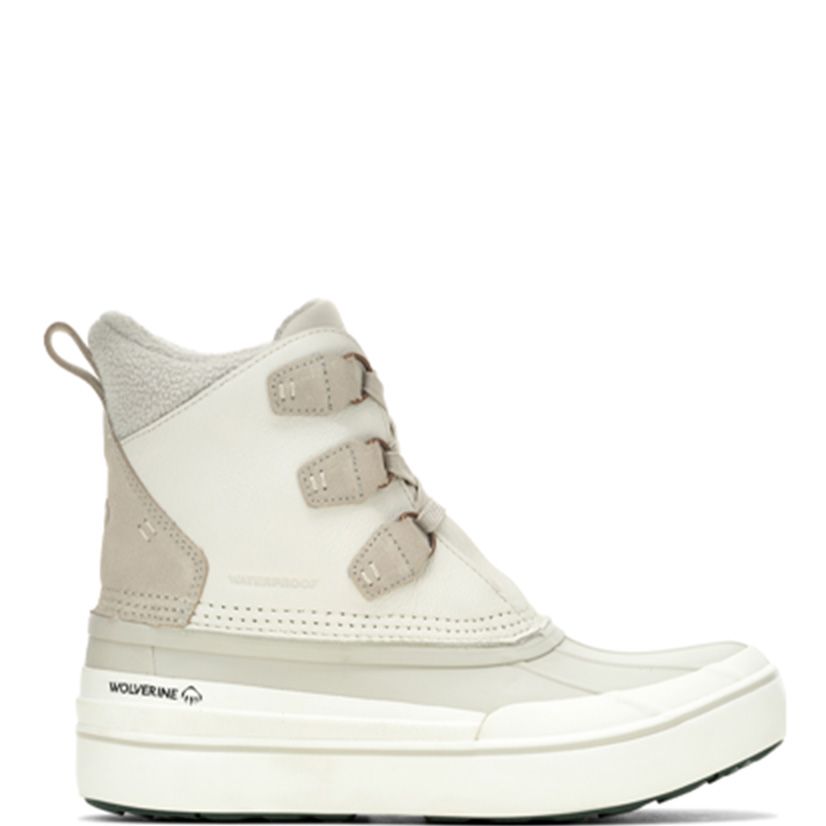
SHOP NOW >
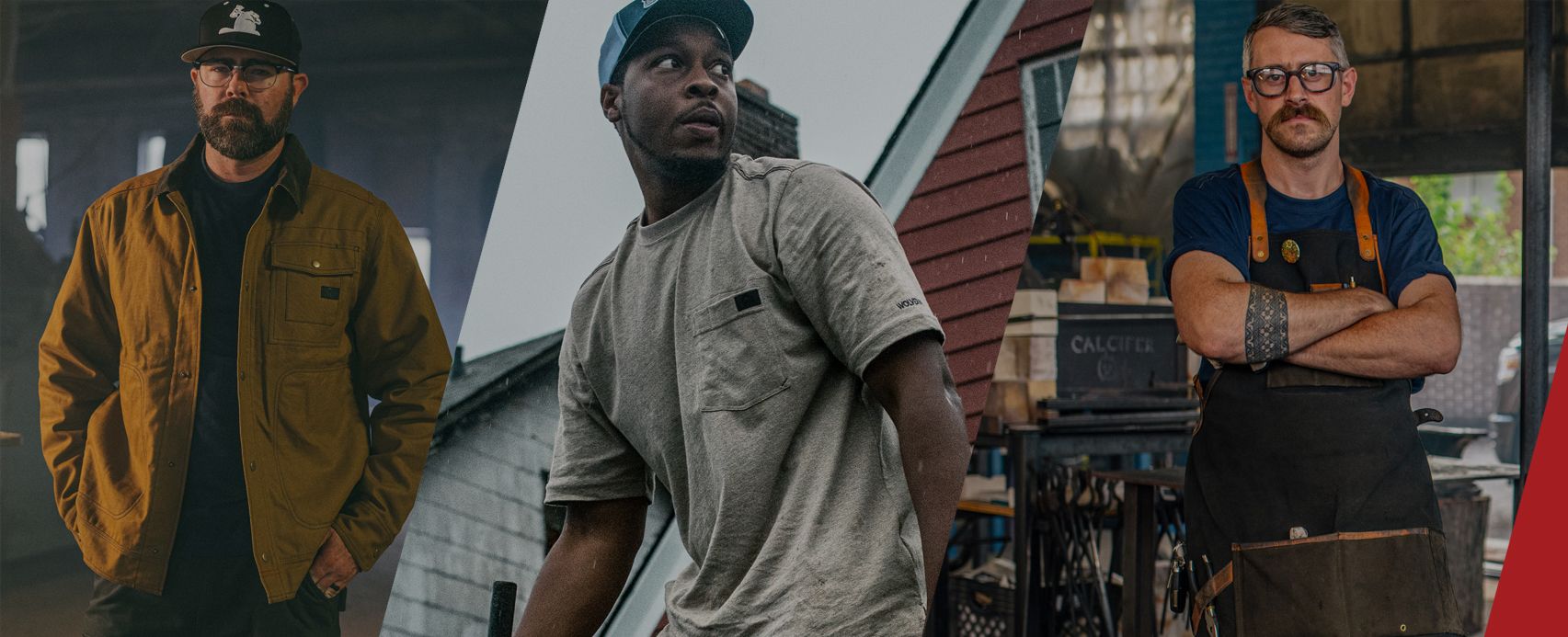


Secure 15% Off Your first order

